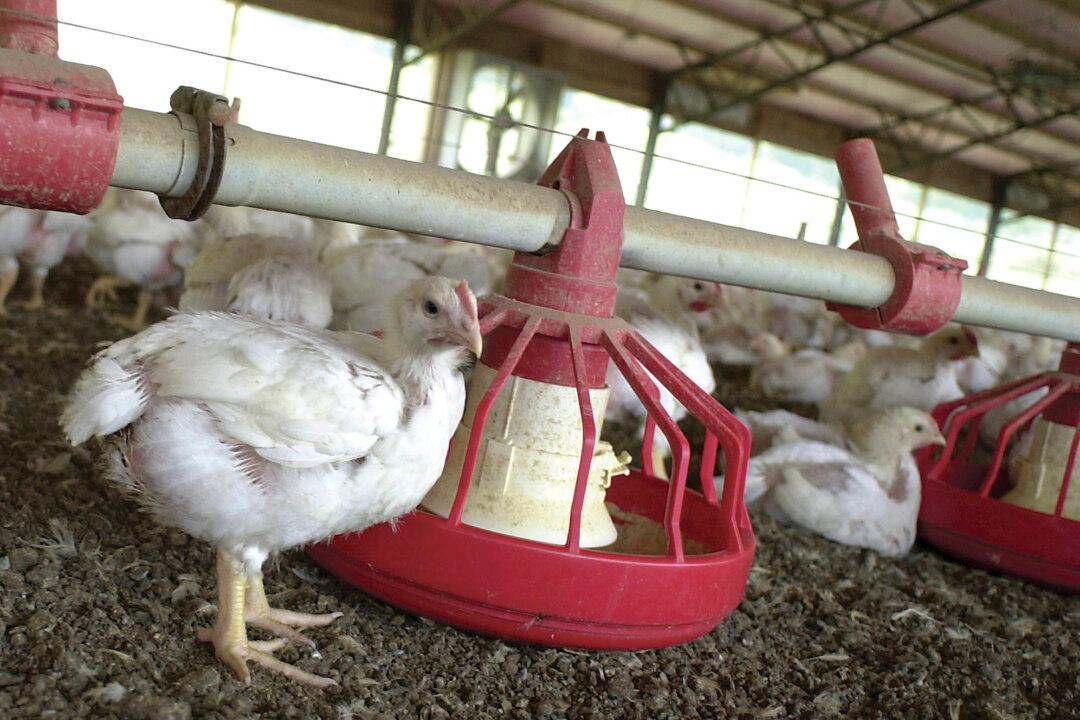More than 90 percent of U.S. store-brand chickens have the muscle disease known as “white striping,” according to findings released on Monday by The Humane League.
White striping disease is a muscle myopathy that occurs when chickens are bred for rapid growth. The stripes appear on the chickens when they are unable to keep up with the unnaturally fast muscle growth, which can also create problems with blood and oxygen flow.





